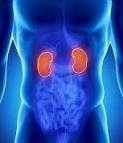Advertisment
Urine test predicts kidney transplant rejection

Taken from the NEJM – by Bruce Sylvester – Three biomarkers in the urine of kidney transplant recipients can be used to diagnose and predict transplant rejection, researchers from a clinical trial sponsored by the (US) National Institute of Allergy and Infectious Diseases (NASID) reported on July 4, 2013 in the New England Journal of Medicine.
“The development of a noninvasive test to monitor kidney transplant rejection status is an important advance that will allow doctors to intervene early to prevent rejection and the kidney injury it causes, which should improve long-term outcomes for transplant recipients,” said NIAID Director Anthony S. Fauci, M.D.
“Potentially, a noninvasive test for rejection would allow physicians to more accurately and routinely monitor kidney transplant recipients,” said Daniel Rotrosen, M.D., director of NIAID’s Division of Allergy, Immunology and Transplantation. “By tracking a transplant recipient’s rejection status over time, doctors may be able to modulate doses of immunosuppressive drugs to extend the survival of the transplanted kidney.”
The new test of molecules that indicate the effect or progress of a disease could offer an accurate, noninvasive alternative to the standard kidney biopsy, the authors said.
As background they noted that, after a kidney transplant, patients receive anti-rejection immunosuppressive therapy. But approximately 10 to 15 percent of kidney recipients reject the transplant within a year. Biopsy is typically performed when post-transplant signs of kidney injury appear. But biopsy samples do not always provide an accurate picture of the overall state of the organs, since tissue samples are small and might not contain injured tissue.
Researchers led by Manikkam Suthanthiran, M.D., of Weill Cornell Medical College in New York and Abraham Shaked, M.D., Ph.D., of the University of Pennsylvania School of Medicine in Philadelphia, analyzed urine samples from 485 kidney transplant patients. The samples were taken beginning at day-3 after transplantation, and out to approximately one year.
They assessed the urinary cell levels of several biomarkers known to be associated with rejection.
Statistical analysis showed that three urinary biomarkers gave a diagnostic signature that could separate kidney recipients with biopsy-confirmed rejection from patients whose biopsies showed no signs of rejection, or from patients who did not have a biopsy.
The researchers assigned values to each urine sample and identified a threshold value indicating rejection. Then they were able to detect transplant rejection accurately. They got similar results testing a set of urine samples collected in a separate clinical trial, validating the diagnostic signature.
To determine the value of the urine test to predict future rejection, the investigators analyzed trends in the diagnostic signature in urine samples from the weeks before a rejection. They found that values for patients who experienced rejection increased slowly but steadily up to the event, usually with a sharp rise at approximately 20 days before biopsy-confirmed rejection had occurred. Values for patients with no clinical signs of rejection remained relatively stable and below the threshold for rejection.
The authors concluded that the findings suggest the possibility of identifying and treating an impending rejection before substantial kidney damage occurs.
“The test described in this study may lead to better, more personalized care for kidney transplant recipients by reducing the need for biopsies and enabling physicians to tailor immunosuppressive therapy to individual patients,” said investigator and NIAID Transplantation Branch Chief Nancy Bridges, M.D..
This study was funded by grants from NIAID and (US) National Institutes of Health, and the (US) National Center for Advancing Translational Sciences. The Qatar National Research Fund also provided financial support.





